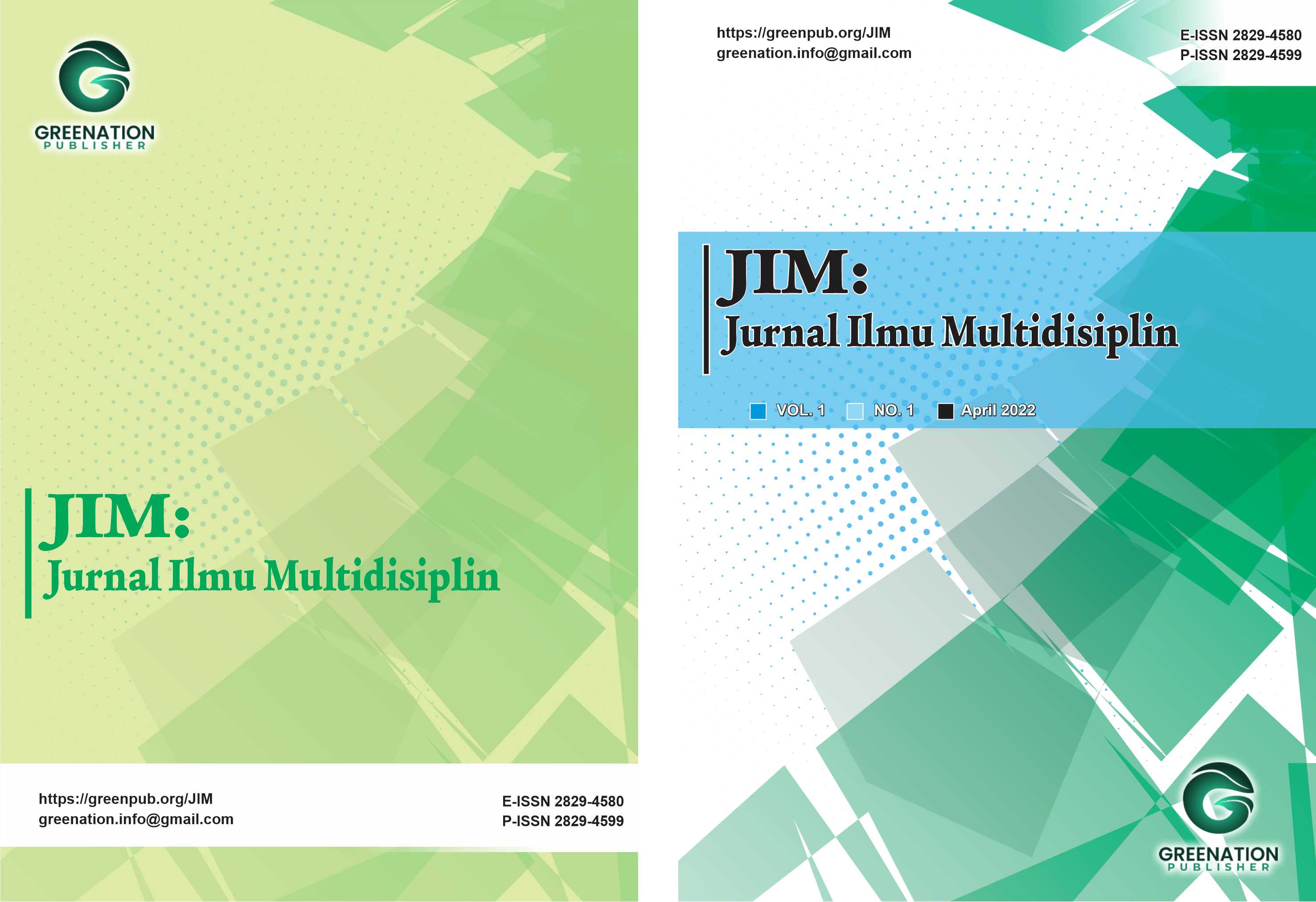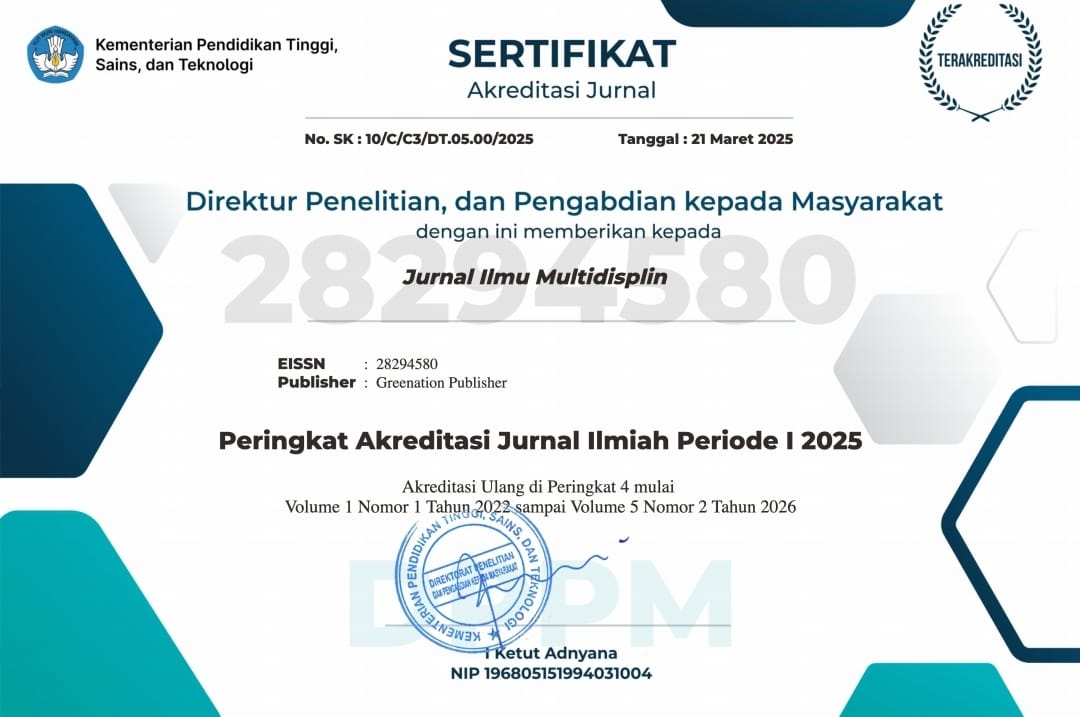Pengaruh Adiksi Bermain Game Online Terhadap Kecerdasan Emosi dan Motivasi Belajar Pada Siswa SMPN X
DOI:
https://doi.org/10.38035/jim.v4i3.1174Keywords:
Adiksi game online, Kecerdasan emosi, Motivasi BelajarAbstract
Perkembangan teknologi informasi dan komunikasi yang pesat telah membawa perubahan besar di berbagai aspek kehidupan manusia, termasuk di bidang hiburan. Salah satu bentuk hiburan yang mengalami perkembangan signifikan adalah game online yang kini menjadi fenomena global dengan jumlah pemain yang terus meningkat, terutama di kalangan remaja. Salah satunya fenomena yang terjadi di SMPN X yaitu adanya kompetisi game online yang rutin diadakan. Tanpa disadari, adanya kompetisi ini juga menjadi stimulus tambahan bagi siswa untuk semakin intens bermain game online. Penelitian ini bertujuan untuk mengetahui pengaruh adiksi game online terhadap kecerdasan emosional dan motivasi belajar siswa SMPN X. Metode penelitian yang digunakan adalah pendekatan kuantitatif dengan metode survei. Sampel terdiri dari 171 siswa yang dipilih menggunakan teknik purposive sampling. Hasil penelitian menunjukkan bahwa adiksi game online berpengaruh negatif signifikan terhadap kecerdasan emosional dan motivasi belajar siswa. Semakin tinggi tingkat adiksi terhadap game online, semakin rendah pula tingkat kecerdasan emosional dan motivasi belajar mereka.
References
Akbar, R. F. (2022). Efektivitas Problem Solving Therapy Untuk. Journal of Psychological Research, 1–10. https://doi.org/10.29313/schema.v0i0.5002
APJII. (2022). Asosiasi Penyelenggara Jasa Internet Indonesia). (2022). Laporan Survei Internet Indonesia 2022. Laporan Survei Internet Indonesia 2022.
Apriliyani, A. (2020). Hubungan Intensitas Bermain Permainan Online Dengan Kecerdasan Emosional. Psikoborneo: Jurnal Ilmiah Psikologi, 8(1), 40. https://doi.org/10.30872/psikoborneo.v8i1.4856
Apriyani, N., Jaya, R. C., & Nuradina, K. (2023). The Impact That Work Environment, Work Motivation, And Work Discipline Have on The Performance of Hammer Strong Bandung Employees. Journal of Business and Management Inaba, 2(02), 111–130. https://doi.org/10.56956/jbmi.v2i02.252
BPS. (2020). Badan Pusat Statistik. (2020). Statistik Indonesia 2020. Jakarta.
Ekanesia, P., Febriyanti, D., Aulia, Z., Hanifah, S., & Athallah, S. F. (2023). EXPLORING SELF-POTENTIAL IN THE COMPETITION OF THE. 02(01). https://doi.org/10.56956/inacos.v2i01.194
Muhammad Reza, R., & Mulawarman, M. (2021). Efektivitas Konseling Kelompok Online Pendekatan Behavior Teknik Self Management Untuk Mengurangi Kecenderungan Kecanduan Game Online Siswa. Counsenesia Indonesian Journal Of Guidance and Counseling, 2(1), 22–30. https://doi.org/10.36728/cijgc.v2i1.1432
Ondang, G. L., Mokalu, B. J., & Goni, S. Y. V. I. (2020). Dampak game online terhadap motivasi belajar mahasiswa jurusan Sosiologi FISPOL UNSRAT. Jurnal Holistik, 13(2), 1–15.
Pratama, R. A., Widianti, E., & Hendrawati, H. (2020). Tingkat Kecanduan Game Online pada Mahasiswa Fakultas Keperawatan. Journal of Nursing Care, 3(2). https://doi.org/10.24198/jnc.v3i2.22850
Rachmadhani, N., & Fikri, A. (2023). Penguatan Psychological Capital Siswa SMK X dalam Menghadapi Dunia Kerja Sebagai Upaya Mereduksi Tingkat Kemiskinan. Inaba Journal Of Psychology, 1(01), 24–32. https://doi.org/10.56956/ijop.v1i01.188
Robert J Vallerant, Luc G. Pelletie, Marc R. Blais, Nathalie M. Briere, Caroline Senecal, & Evelyne F. Vallieres. (1992). The Academic Motivation Scale: A Measure of Intrinsic, Extrinsic, and Amotivation in Education. Educational and Psychological Measurement. In Educational and Psychological Measurement (Vol. 52, pp. 1003–1017).
Sastri, P. D. (2022). Academic Procrastination in Students and How To Overcome It. Journal of Business and Management Inaba, 1(02), 89–96. https://doi.org/10.56956/jbmi.v1i02.118
Schutte, N. S., Malouff, J. M., Hall, L. E., Haggerty, D. J., Cooper, J. T., Golden, C. J., & Dornheim, L. (1998). Development and validation of a measure of emotional intelligence. Personality and Individual Differences, 25(2), 167–177. https://doi.org/10.1016/S0191-8869(98)00001-4
Utami, T. W., & Nurhayati, F. (2019). Kecanduan Internet Berhubungan Dengan Interaksi Sosial Remaja. Jurnal Keperawatan Jiwa, 7(1), 33. https://doi.org/10.26714/jkj.7.1.2019.33-38
Weinstein, A. M. (2010). Computer and video game addiction-A comparison between game users and non-game users. American Journal of Drug and Alcohol Abuse, 36(5), 268–276. https://doi.org/10.3109/00952990.2010.491879
Downloads
Published
How to Cite
Issue
Section
License
Copyright (c) 2025 Syafira Nur Indillahi, Pratidina Ekanesia

This work is licensed under a Creative Commons Attribution 4.0 International License.
You are free to:
- Share— copy and redistribute the material in any medium or format
- Adapt— remix, transform, and build upon the material for any purpose, even commercially.
The licensor cannot revoke these freedoms as long as you follow the license terms.
Under the following terms:
- Attribution— You must give appropriate credit, provide a link to the license, and indicate if changes were made. You may do so in any reasonable manner, but not in any way that suggests the licensor endorses you or your use.
- No additional restrictions— You may not apply legal terms or technological measures that legally restrict others from doing anything the license permits.
Notices:
- You do not have to comply with the license for elements of the material in the public domain or where your use is permitted by an applicable exception or limitation.
- No warranties are given. The license may not give you all of the permissions necessary for your intended use. For example, other rights such as publicity, privacy, or moral rightsmay limit how you use the material.



























